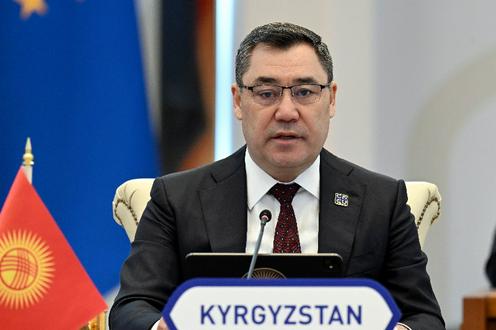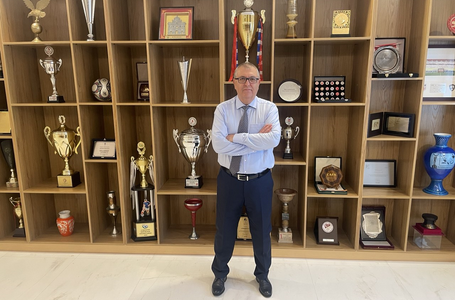President of Kyrgyzstan Sadyr Japarov proposed establishing a partnership with the European Union for the development of critical raw materials within Kyrgyzstan. The proposal was made during his address at the Central Asia–European Union summit held in Samarkand, according to a statement from the presidential press service.
Japarov underscored that cooperation in the extraction and processing of critical raw materials represents a promising avenue for collaboration.
“Kyrgyzstan holds substantial reserves of rare and valuable metals,” he said. “We propose intensifying cooperation in this field by formalizing it through a dedicated partnership or a ‘roadmap,’ as has already been done between the EU and some of our neighbors.”
The Kyrgyz president also noted that trade turnover with EU countries has increased 2.4 times over the past four years, a growth attributed to open markets and the Generalized System of Preferences Plus (GSP+) initiative.
Japarov emphasized Kyrgyzstan’s strategic geographic location and growing transit potential, which, he said, creates extensive opportunities for trade and investment. He called on European businesses to actively participate in mutually beneficial projects.
In addition, Japarov invited the EU to join large-scale hydropower projects, particularly the Kambar-Ata-1 Hydropower Plant, which Kyrgyzstan is developing in cooperation with Kazakhstan and Uzbekistan. He also expressed interest in expanding collaboration with the EU in renewable energy and energy-efficient technologies.
“Over the past year, we have commissioned 18 small hydropower plants, and this year we are building 15 more. At the same time, we’ve launched solar energy projects with a combined capacity of more than 400 megawatts,” Japarov said. “In the face of global climate change, transitioning to a green economy and developing renewable energy sources is our only viable path toward sustainable development.”
The first Central Asia–European Union summit took place in Samarkand under the slogan Investing in the Future. Participants included European Council President António Costa, European Commission President Ursula von der Leyen, and the presidents of Uzbekistan, Kazakhstan, Kyrgyzstan, Tajikistan, and Turkmenistan.










